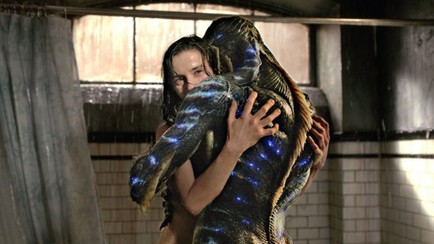|
The stakes for the heroic activists in David France’s documentary How to Survive a Plague are life and death. Composed of archival footage from the 80’s and 90’s, France withholds who’s going to be alive when the film ends. Some of the more prominent leaders of Act Up, bright and vivacious in the past, don’t see their quest through to the end. The story of the LGBT men and women and their allies who spent years advocating for their community in the hunt for a treatment for HIV and AIDS is one of passion and protest and theatricality, but it’s primarily a story of people becoming capital-C Citizens, of motivated individuals, their brains and their hearts working as one, marshalling all the knowledge available on a subject and bludgeoning the unwieldy apparatuses of government and big business into tragically-belated action. This is a civics success story, but one built on the 8.2 million bodies who died before a reliable and safe treatment for AIDS could be put into practice. How to Survive a Plague contains the best and the worst of America, a bravura journalistic masterpiece that retains its anger 22 years from when its historical timeline ends.
0 Comments
Controversy isn’t something the Star Wars franchise courts. It is mass cinematic entertainment aimed at pleasing the widest swath of the population as possible. The quality might dip from entry to entry, but the online cognoscenti don’t write think pieces or really argue about anything much more than favorite segments and the role of nostalgia in Star Wars. The franchise’s Manichean simplicity is part of its appeal, as evidenced by JJ Abrams’ series reboot The Force Awakens and its competent aping of the then-38 year old original. Rian Johnson’s The Last Jedi takes Abrams’ new foundation and significantly alters it, making an entry into the long-running nonalogy that dares to be gray and have thematic statements beyond good and evil. Hugely controversial in its disdain for certain obsessive factions of the fandom, The Last Jedi is in open conversation with what Star Wars adherents can and should expect from their favorite series. That kind of meta layer doesn’t make for the most immersive experience, but there’s much to be admired from a Star Wars film with something on its mind.
It’s easy to dismiss The Shape of Water as that light fantasy movie about bestiality between a human woman and male frog-man. Even its Best Picture win doesn’t stop the jokes at its expense. In the spirit of accuracy, the dismissive stance is a factual statement, in that interspecies sex does indeed happen, but the fish-man also chomps on a finger. Why isn’t The Shape of Water the finger-chomping movie? Joyful director Guillermo del Toro’s most commercially and critically successful work deserves better than late-night jokes, because under its outre logline is a stunning and endlessly enjoyable film that reserves its greatest sympathies for cripples, bastards, and broken things (to borrow a phrase from George RR Martin) at the end of the conservative and stilted pre-60’s era. If that happens to include a lonely yet horny frog-man, then so be it.
The standard image of the phoenix rising from the ashes is that of the majestic creature soaring straight up, powerful and reborn with vigor to spare. Christian Petzold’s searing masterpiece invokes the phoenix in direct opposition to such an image. The rebirth that the film revolves around, in which a woman thought dead in the Holocaust returns to post-war Berlin, is tentative and guilt-ridden, bruised and scarred. There is no spreading of wings, because how could there be? Petzold engages in the myth of the phoenix particularly in how badly people want it to be true, that someone could experience trauma and immediately get back to their life. Like the best films surrounding the atrocity of WWII, Phoenix has little patience for that kind of romanticism, but it also avoids becoming a nihilistic dirge. Petzold, along with frequent collaborator Nina Hoss, finds ugly truths alongside powerful demonstrations of resilience, a cohabitation that is the essence of 20th century history.
|
Side PiecesRandom projects from the MMC Universe. Categories
All
Archives
April 2023
|




 RSS Feed
RSS Feed